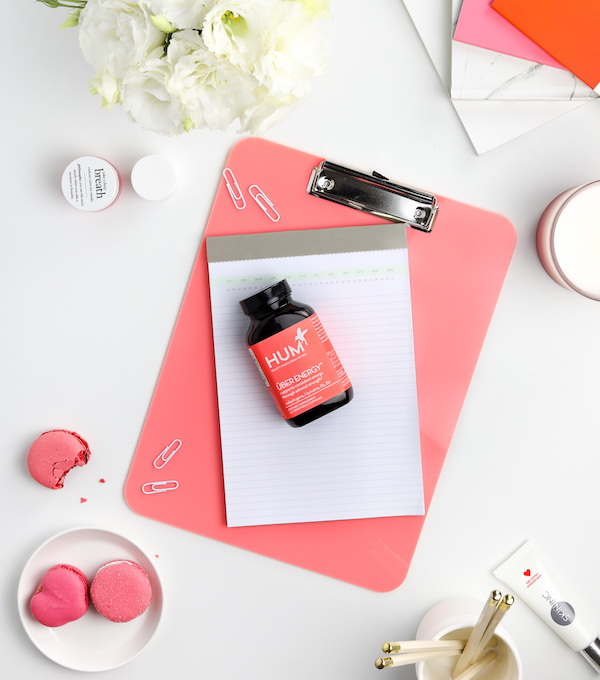Medically Reviewed By
Gaby Vaca-Flores, RDN, CLE
Registered Dietitian Nutritionist
Today is World Mental Health Day, and the theme this year is one I couldn’t be more ready to talk about: mental health in the workplace.
As someone who has personally struggled with depression and was no stranger to crying at my desk in my early twenties, this subject is near and dear to my heart. If you can relate, know that you’re not alone. The workplace is a challenging environment in which to manage mental health. In fact, there are some staggering statistics about the prevalence of stress at work. According to one survey, as many as 35 percent of workers say their jobs are harming their physical or emotional health.
Here are some verified strategies for managing stress at work to which I can personally attest.

Take Breaks During Your Work Day
Research shows that only one in five workers leave their desk for a lunch break. The irony? Experts say that taking breaks will actually help you stay focused and improve performance. Get away from your computer to eat lunch and take regular breaks when working on projects. HUM’s CEO, Walter Faulstroh, recommends working in 90-minute sets followed by 10-minute breaks. “Chat with a co-worker, go for a walk—anything that gets you away from your desk. It’s so important.”
Feng Shui Your Desk
Researchers at Princeton found that the visual stimuli of a cluttered environment limits your brain’s ability to focus and process information. In another study, a tidy environment produced healthier choices and greater generosity. Make time to clear your desk and while you’re at it, your desktop. For bonus points, invest in a few plants to decorate your space with. Indoor plants are associated with reduced stress and improved productivity.Set Boundaries For Your Personal Life
One poll found that 52 percent of Americans who work 50-plus hours a week don’t take all of the vacation they’ve earned. In another survey, 50 percent of workers reported checking email on the weekends, 46 percent say they check email on sick days, and 34 percent check emails on vacation. Overachieving is all too convenient in the digital age, but we’re going to say it: don’t be a hero. Staying plugged in at all hours of the day can lead to burnout and health problems. Vacation time is offered for a reason! Try removing your work email from your personal devices, sleep when you’re sick, book that trip to Europe, and don’t spend it answering emails from another time zone.Find An Outlet For Stress
Even with the most decluttered desk and boundaries in place, there will inevitably be big projects that come up or surprise deadlines that will make you want to go home, cry, and consider moving back in with your parents. On days like this, it’s so important to implement some much needed self-care. Go for a run. Take a yoga class. Run a bath. Throw on a sheet mask. Spend some time writing down the things you’re grateful for. Sip some tea. Do anything to get your cortisol levels down.Make Big Shifts As Needed
As much as these little practices can make a difference, it’s also important to step back and look at the big picture. Do you have a 90-minute commute that eats away time you could be spending with loved ones? Is the work you’re doing in line with your personal values? Is your office environment collaborative and supportive, or reeling and toxic? I get it. In a really stressful period, the last thing you want to think about is the hassle of looking for a new job. If it improves your quality of life long term though, it’s well worth the time. Set a review with yourself twice a year. Check in and consider what you’re grateful for, what’s not working, and what your goals are—then make moves in that direction.More like this









